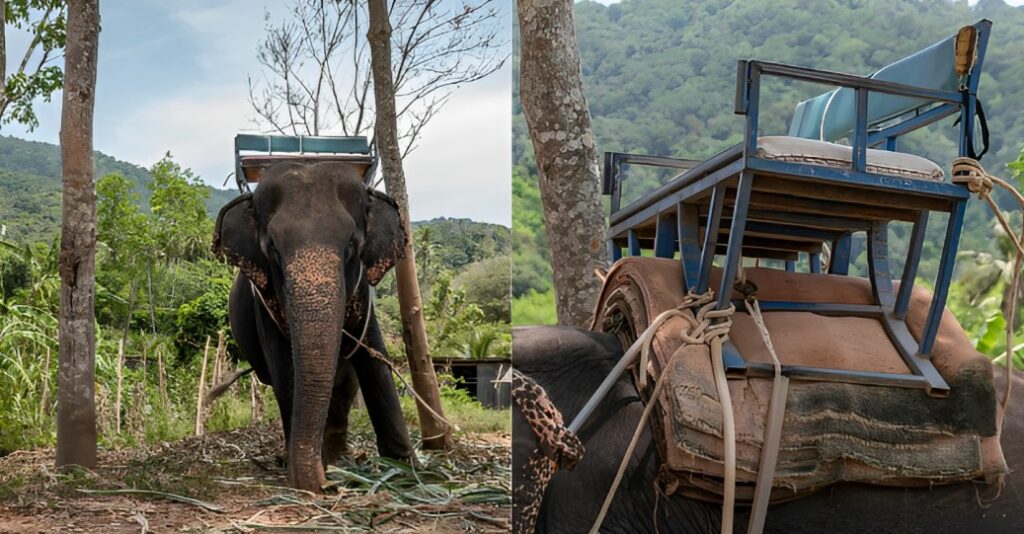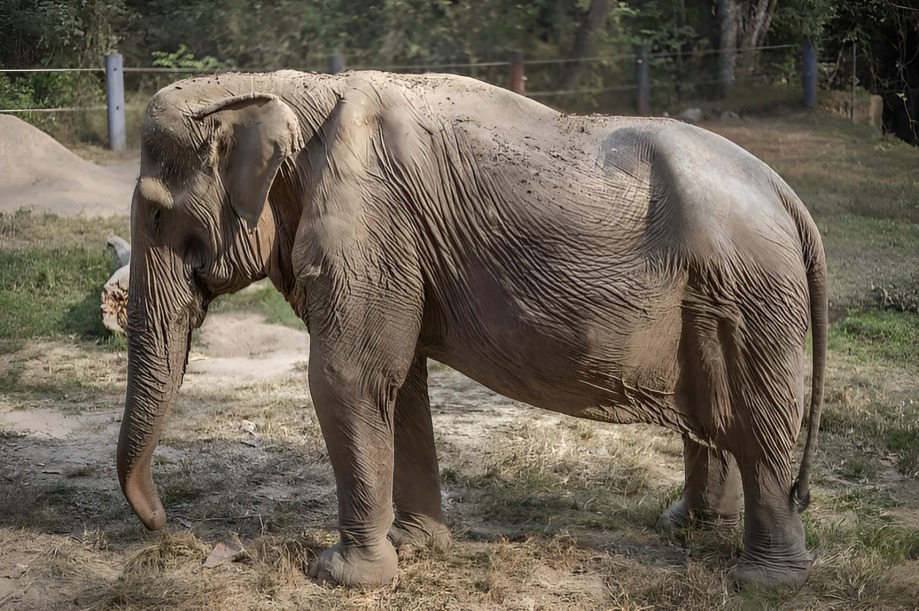Elephants, the largest land mammals in the world, are renowned for their might. They carry large items and offer elephant rides as working animals. After years of transporting tourists, one elephant’s back is permanently damaged.
Pai Lin, a 71-year-old female elephant who has been forced to carry up to six tourists at once for 25 years, has a caved-in spine, according to Ms. Amy Jones, a representative for Wildlife Friends Foundation Thailand (WFFT).
For What Work Pai Lin Was Used?
She spent several years in the logging industry as well as being utilized as a prop for street begging. She was made to carry a bulky howdah, which is a kind of seat that can hold up to six tourists. She has several scars from pressure sores as a result, and her spine is clearly crooked.
According to Ms. Jones, Pai Lin, who was saved by WFFT in 2007, arrived at the Thailand-based nonprofit afraid, underweight, dehydrated, and suffering from a respiratory infection that caused nasal and eye discharge. She was also suffering from malnutrition.

How Do Elephants In The Logging Industry Work?
According to Newsweek, elephants working in this sector frequently spend entire days carrying the weight of their handler, passengers, and the howdah seat.
Because of the persistent pressure on their bodies, their bones and tissues degrade, and their spines sustain irreparable harm.
Tom Taylor, the project director for WFFT, stated: “Elephants are recognized for their size and power, yet their backs are not built to support weight since their spines stretch upward. As evidenced by our kind Pai Lin, constant pressure from tourists can cause irreversible physical harm to their backbones.
What Did Singapore Zoo Do After This Incident?
Elephant rides were discontinued at the Singapore Zoo in 2015, and during twice-daily performances, the elephants were no longer forced to perform tricks like balancing on logs. They are urged to behave naturally as a substitute.
The WFFT’s elephant sanctuary in the western Thai province of Phetchaburi is home to Pai Lin and 22 other rescued elephants. There, she receives round-the-clock medical attention, specialized supplements, and nutrient-rich food.
Although the elephant’s spinal abnormality is permanent, Ms. Jones explained that because there is no longer any weight or strain on its back, the injury won’t become worse.

